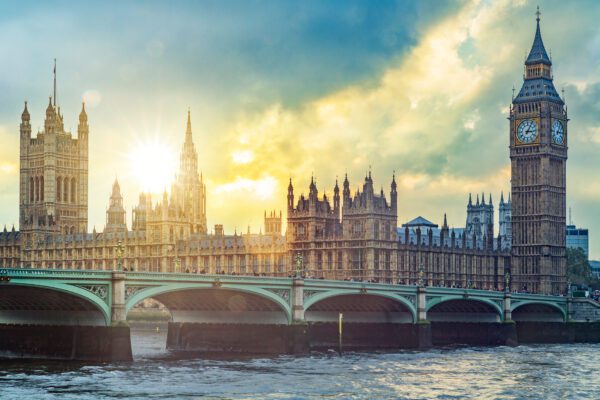
Ministerial appointments announced following Labour win
Following Labour’s general election win on Friday 5 July, the new government has issued a list of ministerial appointments approved by His Majesty The King.
Following Labour’s general election win on Friday 5 July, the new government has issued a list of ministerial appointments approved by His Majesty The King.
Which appointments are central from utilities perspective?
Although further ministerial appointments and their exact responsibility areas are to be announced, there are some key figures in the policy and regulatory space impacting the utilities industry we can look at.
Keir Starmer: Prime Minister
Why is this role significant?
The Prime Minister is the leader of His Majesty’s Government and ultimately responsible for all policy and decisions. The Prime Minister also oversees the operation of the Civil Service and government agencies, appoints members of the government and is the principal government figure in the House of Commons.
Ed Miliband: Secretary of State for Energy Security and Net Zero
Why is this role significant?
This Secretary of State role has overall responsibility for the Department for Energy Security and Net Zero (DESNZ). As DESNZ focuses on the energy portfolio of the former Department for Business, Energy and Industrial Strategy, this role is central to significant energy policy decisions.
DESNZ is also supported by key bodies like Ofgem, Committee on Climate Change and Salix.
On his first day in the office Mr Miliband announced the priorities for his department. Although the practical next steps are going to be outlined when the specific policy documents are released, the priorities included:
- Clean power by 2030: To deliver Labour’s clean power mission, their manifesto outlines how the party will work with the private sector to “double onshore wind, triple solar power and quadruple offshore wind by 2030.” This is work also set to include investment in carbon capture and storage, hydrogen and marine energy, as well as long-term energy storage.
- Mr Miliband has appointed Chris Stark, former chief executive of the Climate Change Committee, to lead a new Mission Control to support the 2030 ambition.
- Described as a first of its kind “one-stop shop” in government, the Mission Control for Clean Power is set to work with key energy companies and organisations, including Ofgem, the National Grid and the Electricity System Operator, to “troubleshoot, negotiate and clear the way” for energy projects.
- Under Mr Stark’s leadership, the Mission Control for Clean Power will focus on four strands of activity, including:
- Setting and tracking the overall approach to delivering 2030 across the energy system.
- “Real time monitoring” of progress on UK infrastructure projects critical to 2030.
- Acting as an innovation centre by encouraging discussion among experts.
- Serving as a convener for the Mission Control approach across government and with industry.
- Mr Miliband has appointed Chris Stark, former chief executive of the Climate Change Committee, to lead a new Mission Control to support the 2030 ambition.
- Great British Energy: One of the first steps of the new government is to set up a new, publicly owned green power company. The Great British Energy is set to partner with industry and trade unions by co-investing in leading technologies, help support capital-intensive projects and deploy local energy production.
- £8.3 billion of funding is set to be invested into Great British Energy over the course of this parliament.
- To be headquartered in Scotland, the Great British Energy is also set to partner with energy companies, local authorities and co-operatives to install renewable projects through a combination of onshore wind, solar and hydropower.
- As the government will need to pass legislation to set up Great British Energy, the King’s Speech on 17 July is likely to outline more details.
- Energy system reform: The Labour Manifesto outlined “a much tougher system of regulation”, including working with the regulator to reduce bill weighting on standing charges, strengthen ability to hold companies accountable, require higher standards of performance and ensure “automatic customer compensation for failure.”
- Warm Homes Plan: To be delivered in partnership with combined authorities and local and devolved governments, the Warm Homes Plan is set to offer grants and low interest loans to support investment in insulation and other improvements such as solar panels, batteries and low carbon heating. One of the pledges of this plan includes private rented sector meeting “minimum energy efficiency standards” by 2030.
Sarah Jones: Minister of State – Department for Energy Security and Net Zero and Department for Business and Trade
Responsible for the “actions, successes and failures” of their departments, the Prime Minister chooses Ministers from the members of the House of Commons and House of Lords.
Why is this role significant?
The Minister for Energy Security and Net Zero has historically been responsible for several key policy items and wider regulatory themes:
- Grid
- Net Zero Strategy
- Oil and gas
- Ofgem (with the Minister for Energy Consumers and Affordability)
- COP and international climate policy
- Carbon budgets
- Geospatial plan and wider planning policy
- International climate finance
- Multilateral negotiations (G7 and COP)
- Carbon leakage
Steve Reed, Secretary of State for Environment, Food and Rural Affairs
This Secretary of State has overall responsibility for the Department for the Environment, Food and Rural Affairs (Defra). As Defra develops and implements environmental policy, it’s one of the key players in the regulatory landscape impacting utilities and the wider regulatory space around decarbonisation and creation of green economy.
The Department largely devolves the delivery of its policies to non-departmental public bodies, which often become familiar names through their roles as scheme administrators, such as the Forestry Commission (Woodland Carbon Code) and the Environment Agency (the Energy Savings Opportunity Scheme, or ESOS).
Defra’s decisions are also prominent in greenhouse gas emissions reduction efforts and increasing carbon storage in the agricultural, waste, peat and tree planting sectors to help deliver net zero.
Other relevant appointments include:
- Louise Haigh: Secretary of State for Transport
- Angela Rayner: Secretary of State for Levelling Up, Housing and Communities and Deputy Prime Minister
Where can I find more information?
The full Ministerial Appointments list can be found on gov.uk.
What does this mean for you and your business?
Whilst the impacts of some of the policy decisions the new government is set to make remain to be seen, we understand that changing policy and market landscapes can be difficult to navigate.
You can speak to one of our dedicated energy experts to better understand your organisation’s position and requirements.
Get in touch today on 01772 689250 or email us at [email protected]










